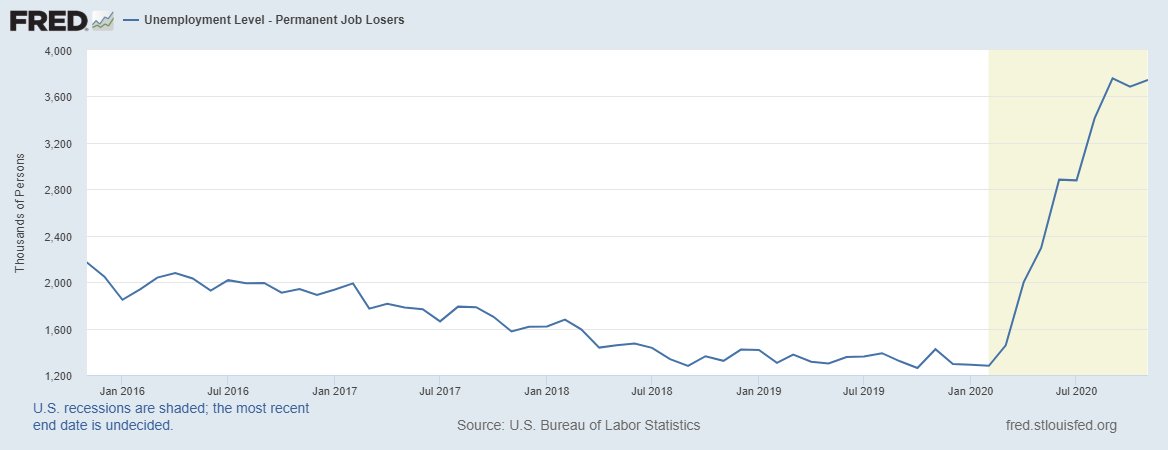
November Jobs Report Thread
There is both good news and bad news buried in the report.
Most often, too much attention is paid to the headline month on month numbers.
1)
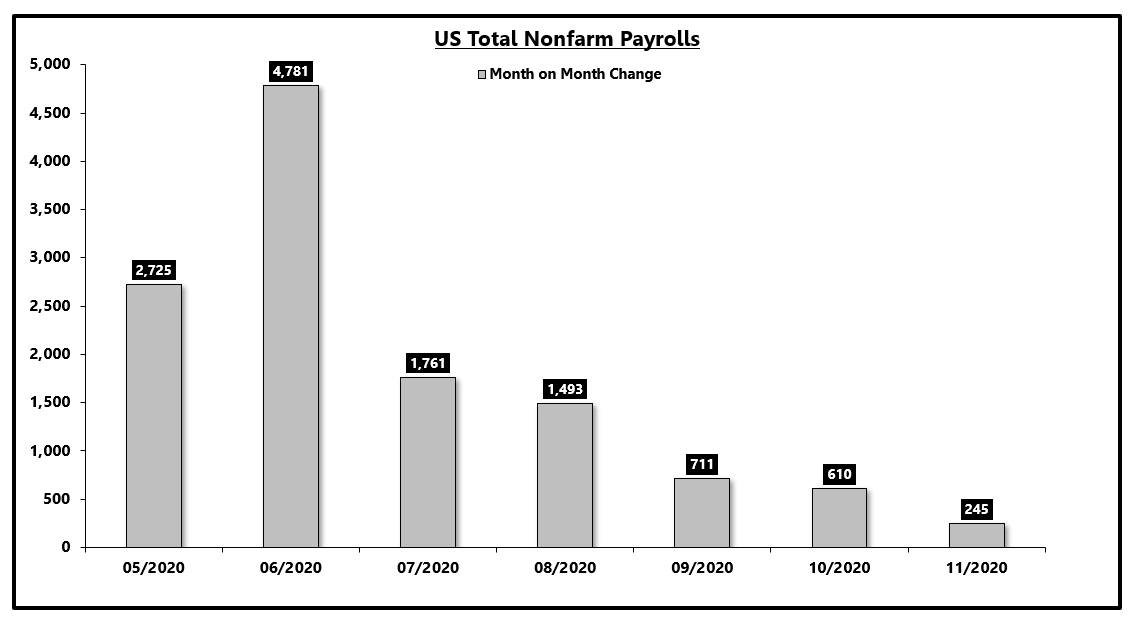

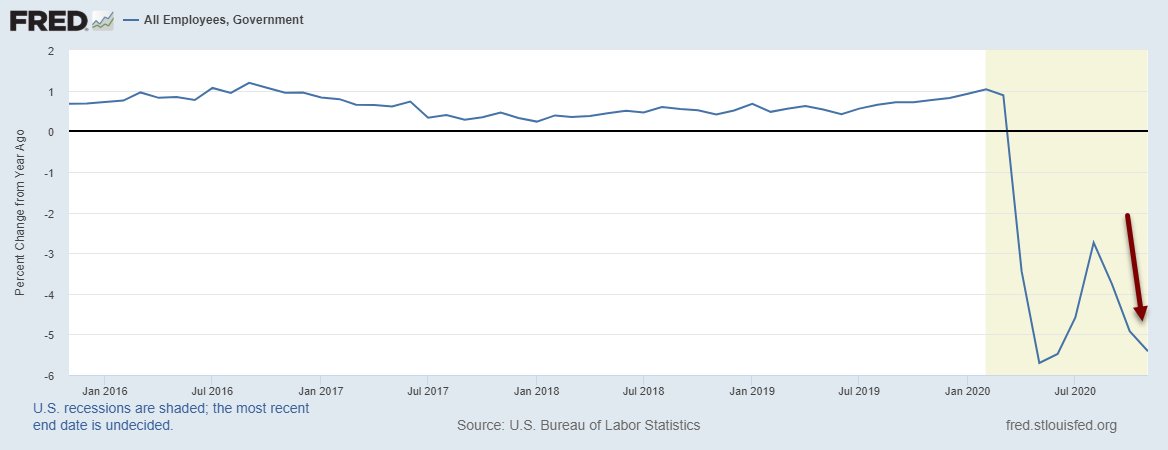
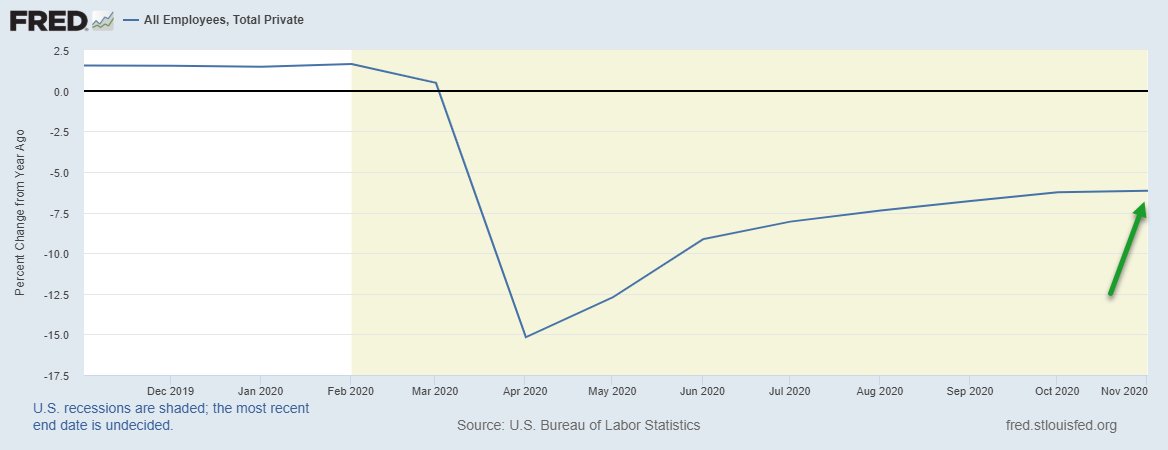
As @R_Perli highlighted, if the LFPR does not increase back to pre-COVID levels, we're going to struggle with weaker trend potential growth.
https://t.co/zw7fCZ2gfY
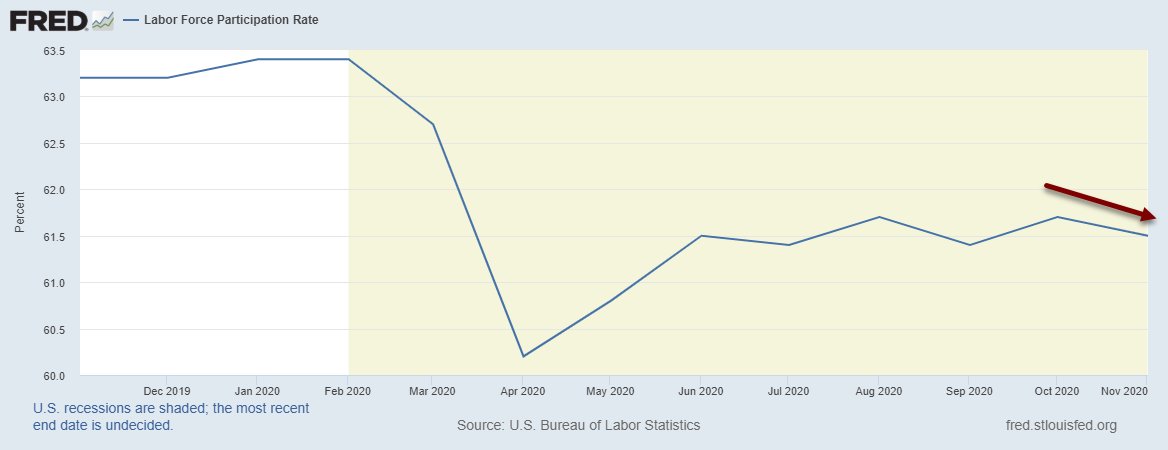
The worst part of the employment report is the stall in the labor force participation rate (-0.2% today and about 2% lower than pre-#COVID19).
— Roberto Perli (@R_Perli) December 4, 2020
The longer participation stays depressed, the harder it will be to bring those workers back, and the lower potential growth will be. pic.twitter.com/7u966oxBME
This is a structural issue and not totally related to demographics either.
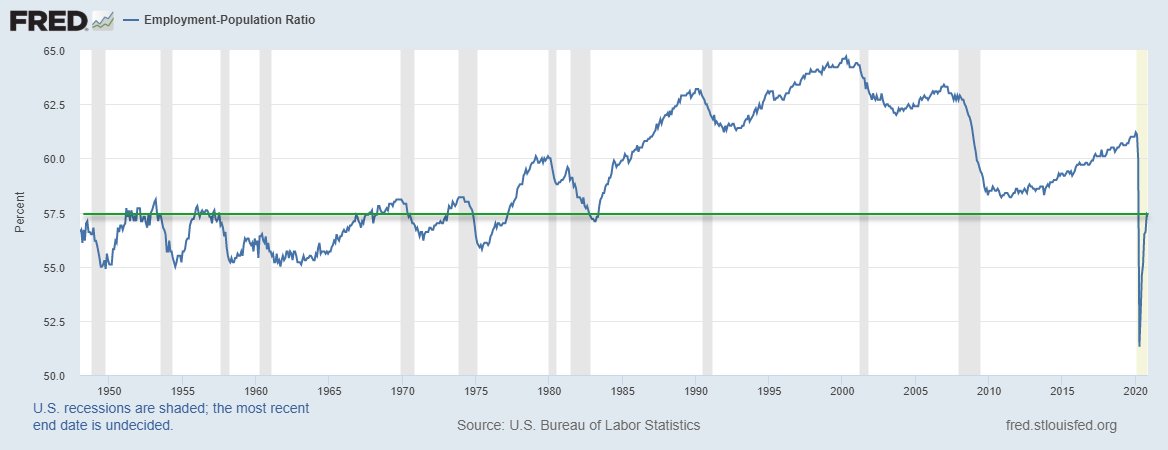
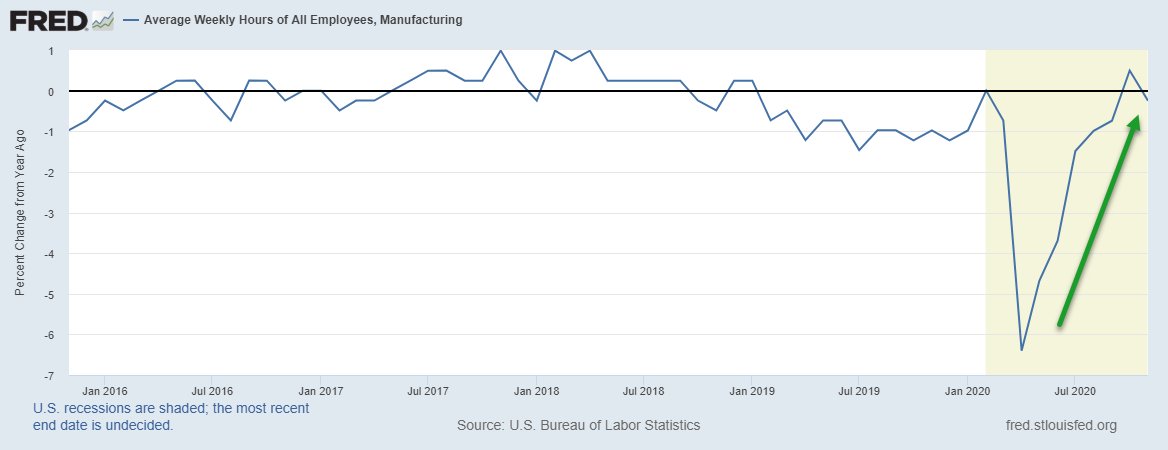
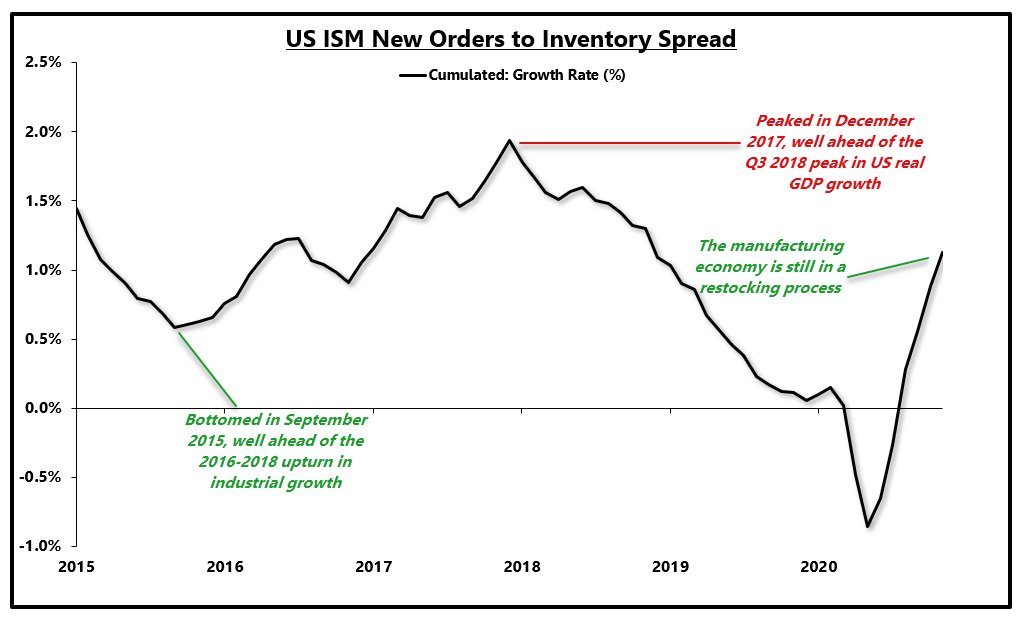
https://t.co/Lxn4g7VyLh
The first year after a recession the snap back is pretty strong vs the decline. Macro tourists get excited and confuse it with a new paradigm. It\u2019s not. After the first year the economy changes gears and settles into its structural growth trend, people confuse that shift too
— GreekFire23 (@GreekFire23) December 4, 2020
We have a growth upturn at the moment so we can ignore the LT trend, but only temporarily.
End.
More from Economy
Vol 70 Apr | '#Vote choices of left-#authoritarians: Misperceived congruence and issue #salience' by @NilsSteiner and Sven Hillen is now available @ches_data @german_gles #Germany https://t.co/pmCoP5t7CL pic.twitter.com/Vl8rCahcZL
— Electoral Studies (@ElectoralStdies) January 30, 2021
In the data from the Campaign Panel of the German Election Study 2017, many voters prefer higher social benefits and taxes and want to restrict immigration. @ches_data show that no party bundles issue positions in this way.
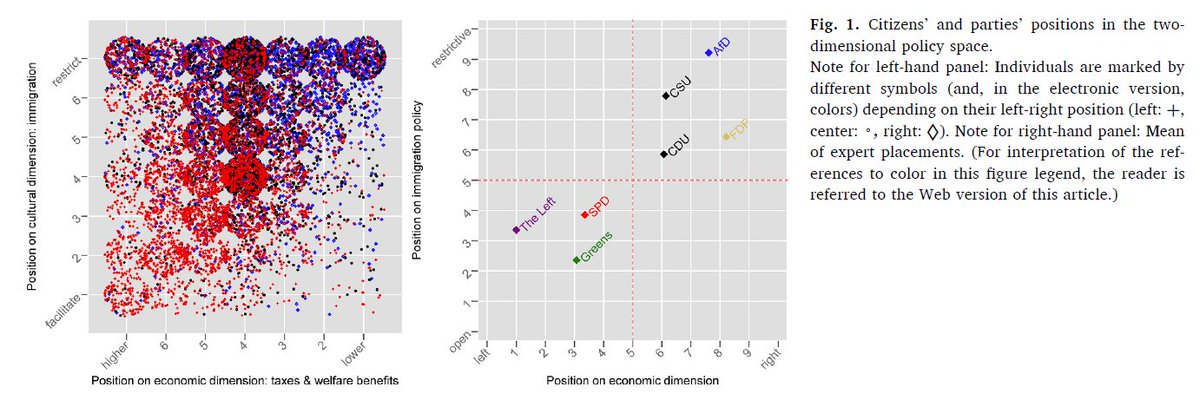
In the article, we show that many such “left-authoritarians” perceive the party they voted for to also hold a left-authoritarian position. Interestingly, this includes many AfD voters who report a perceived left-wing economic position of the party.
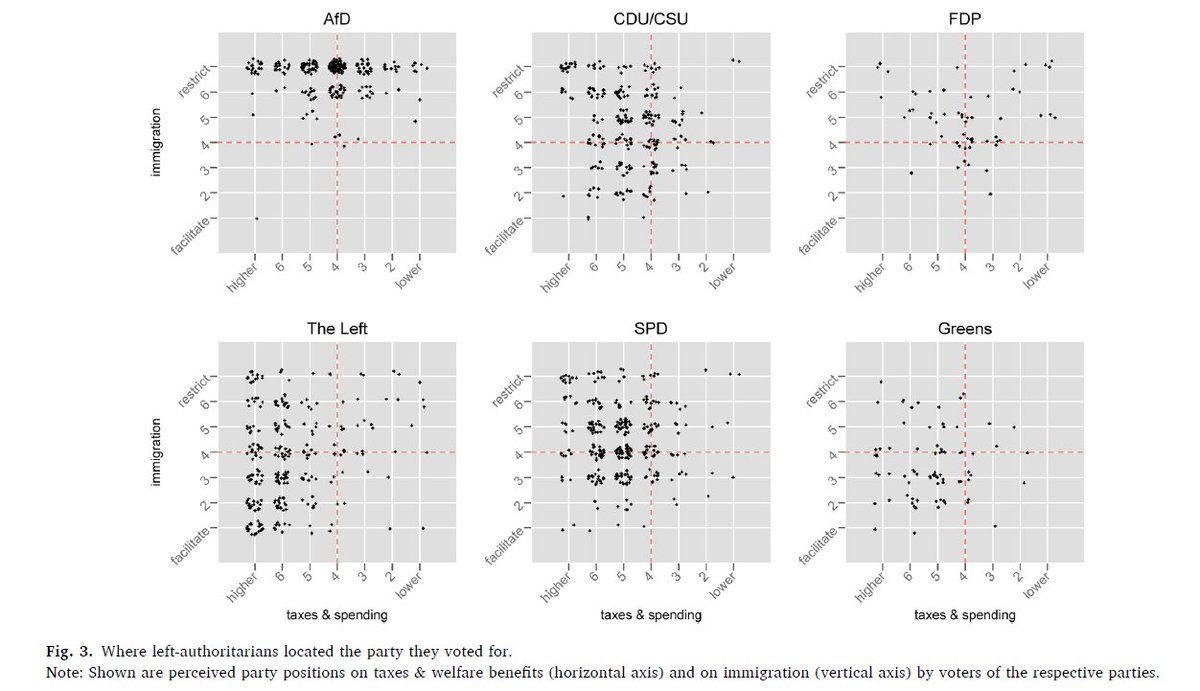
Our statistical models study the interplay between this (mis-)perceived congruence and issue importance, using an open-ended question on the most important political problem in Germany.
We find that (mis-)perceived congruence and issue importance interactively shape the left-authoritarian vote. Simply, perceived congruence matters more on an important issue—and issue salience matters most if voters accurately perceive incongruent party supply.


